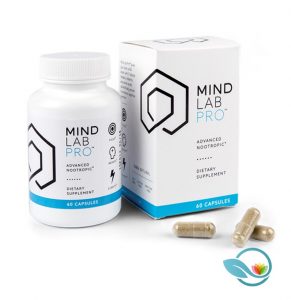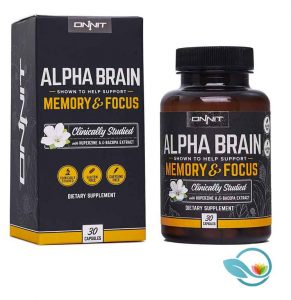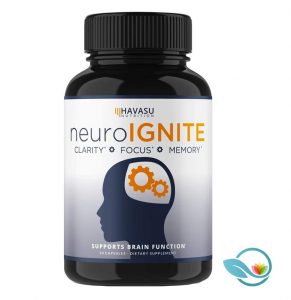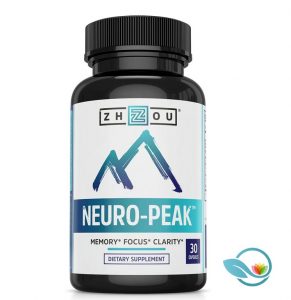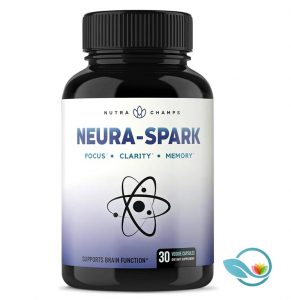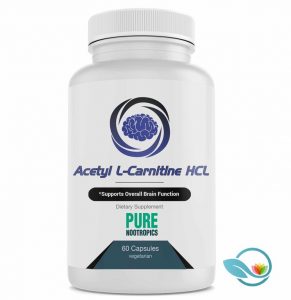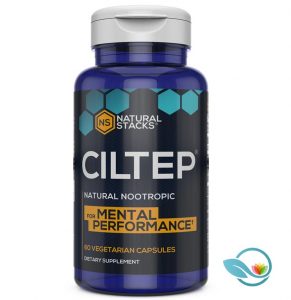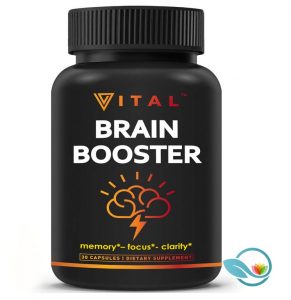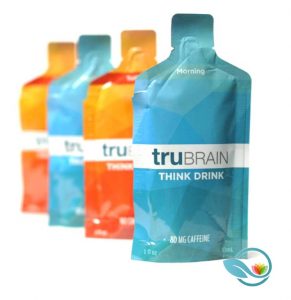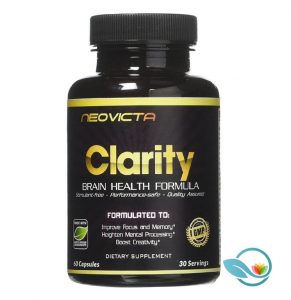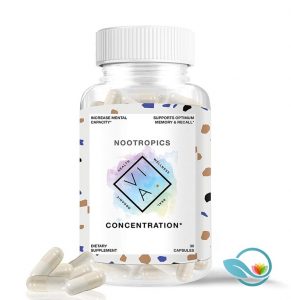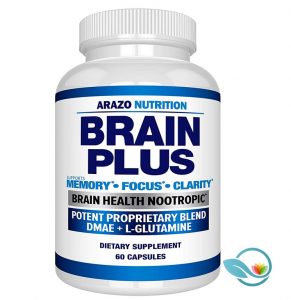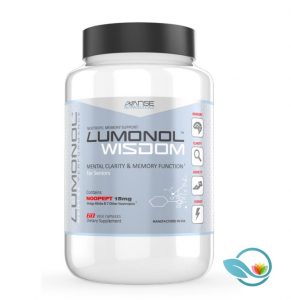Health & Wellness
Reviewing The Best Nootropics and Brain-Boosting Smart Drugs of 2019
Published
6 years agoon
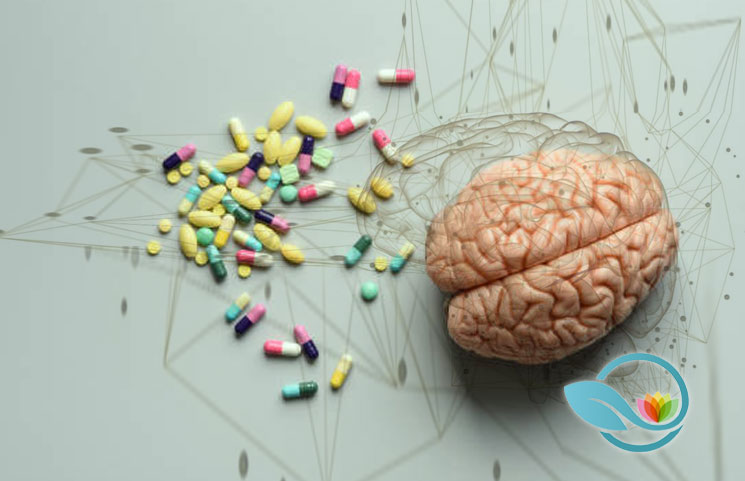
Nootropics are more popular today than ever before. Wall Street executives, tech entrepreneurs, students, and stay-at-home parents are using smart drugs to increase brain function.
A good nootropic enhances your ability to learn and focus. Some nootropics boost your memory. Others help you solve complex problems.
Nootropics have been around for centuries in some form. Over the last decade, however, nootropics have become increasingly mainstream.
The Best Nootropics of 2019
There are more nootropic supplements on the market today than ever before. Here’s our list of the best nootropic supplements of 2019.
Mind Lab Pro Universal Nootropic
Mind Lab Pro’s Universal Nootropic is fueled by clever marketing and sexy packaging. Unlike certain other nootropics on this list, Universal Nootropic is a nootropic stack. It’s not just a single nootropic ingredient: it’s a collection of 11 science-backed nootropics that are believed to work in complementary fashion. The effects of one nootropic ingredient are amplified by the presence of other nootropic ingredients.
Interestingly, Mind Lab Pro also claims that its supplement boosts energy metabolism, helping you think more quickly and better react to situations. Many reviewers swear by Universal Nootropic’s ability to cure brain fog during periods of physical or mental fatigue.
Key ingredients in Universal Nootropic include vitamins B6, B9, and B12; citicoline (as Cognizin); Bacopa Monnieri; lion’s mane mushroom; phosphatidylserine; N-Acetyl L-Tyrosine; L-Theanine; Rhodiola Rosea; and maritime pine bark extract. All dosages are transparently listed on the packaging: Universal Nootropic doesn’t hide the doses inside proprietary formulas like certain other nootropic manufacturers.
You can buy Mind Lab Pro Universal Nootropic online through the official Mind Lab Pro website (MindLabPro.com) or through Amazon.com.
Performance Lab Mind
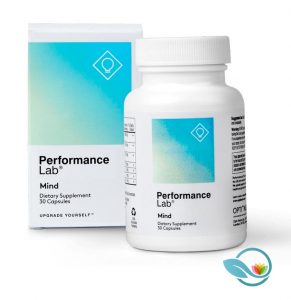
Performance Lab makes a supplement called Mind. Priced at $50 for 30 capsules, it’s certainly not the cheapest nootropic on the market. However, it comes with a relatively high dose of four key nootropic ingredients in each capsule.
There’s 250mg of citicoline per capsule, for example, along with 100mg of phosphatidylserine, 300mg of N-Acetyl L-Tyrosine, and 75mg maritime pine bark extract. Performance Lab claims these ingredients “increase brain energy by sparking brain cells’ power-plant mitochondria”. Other benefits include increased blood flow to the brain, better focus and processing, and improved memory and learning.
Mind comes in 100% natural, vegan “Plantcaps”. The supplement is caffeine-free, non-GMO, gluten-free, soy-free, and allergen friendly. It’s also made in a GMP-certified facility.
Onnit Alpha Brain
Joe Rogan fans have already heard countless adds for Alpha Brain. It’s one of the best-selling supplements from Joe Rogan’s Onnit. One of the main things differentiating Alpha Brain from other competitors listed here is the fact that it has completed a double-blind clinical trial. In 2016, researchers tested 63 individuals between 18 and 35 over a 6 week period. After 6 weeks, researchers noticed that the Alpha Brain group had “significantly improved recent verbal memory” compared to a control group. The study was peer-reviewed and published in Human Psychopharmacology.
Alpha Brain is also one of the few supplements on this list to come in the form of a powder – not a capsule. You can mix the powder into your water bottle to consume it. The peach flavor is particularly popular.
One of the few complaints about Onnit’s Alpha Brain is that many of the ingredients are listed within proprietary formulas, making it difficult to determine exactly how much of each ingredient you are consuming. There’s the Onnit Flow Blend (1,150mg of L-Tyrosine, L-Theanine, oat straw extract, and phosphatidylserine), Onnit Focus Blend (240mg of L-Alpha-GPC, Bacopa extract, and Huperzia serrata extract), and Onnit Fuel Blend (71mg of L-Leucine, Vinpocetine, black pepper extract, and pterostilbene), for example, along with 350mg of cat’s claw bark extract.
Despite minor complaints about ingredient transparency, Onnit’s Alpha Brain remains one of the most popular nootropic supplements in the space.
Havasu Nutrition neuroIGNITE
Havasu Nutrition has a popular nootropic supplement called neuroIGNITE. The supplement is one of the bestselling products in the nootropic category on Amazon. It’s also one of the few supplements that qualifies as an Amazon’s Choice product.
Havasu Nutrition emphasizes natural ingredients in this supplement. Instead of using weird chemicals you’ve never heard of, Havasu Nutrition uses ingredients like St. John’s wort, ginkgo biloba, Bacopa monnieri, and other natural nootropics. The supplement is formulated in the United States at a GMP-certified facility.
Advertised health benefits include improved energy and focus, better memory and mental clarity, and improved mood and cognitive function.
Zhou Nutrition Neuro-Peak
Neuro-Peak is a popular nootropic and another bestseller on Amazon. Similar to other nootropic stacks on this list, Neuro-Peak contains a mix of B vitamins and herbal formulas. Zhou Nutrition claims their supplement will improve your memory, focus, and clarity while also boosting your mood.
Key ingredients in Neuro-Peak include a huge dose of vitamin B12, Bacopa monnieri, ginkgo biloba, and Rhodiola rosea – all of which are similar ingredients to other supplements on this list. One ingredient that sets Neuro-Peak apart, however, is DMAE, a popular nootropic known for boosting mood.
All dosages are transparently listed on the packaging with no proprietary formulas. Zhou Nutrition, also known as Zhou, Inc., is based in Park City, Utah.
Nutra Champs Neura-Spark
Nutra Champs descries their supplement as a “premium brain supplement” that has been “scientifically formulated” with “the best brain-boosting nutrients available today.”
Key ingredients include 300mg of Bacopa monnieri, 50mg of St. John’s wort extract, 50mg of ginkgo biloba, 50mg of Acetyl L-Carnitine, 50mg of gotu kola extract, 25mg of Rhodiola rosea, 25mg of L-Glutamine, 10mcg of Huperzine A, 75mg of DMAE. There’s also a 500mcg dose of vitamin B12, which is 8330% of your Daily Value (although you pass any excess B vitamins out through your urine).
A 30 capsule supply of Nutra Champs Neura-Spark is available from Amazon for around $40.
Pure Nootropics Acetyl L-Carnitine HCL
Acetyl-L-Carnitine, or ALCAR, is one of the most popular nootropic ingredients on the market. It’s also one of the most heavily-researched ingredients. In numerous studies, ALCAR has shown an ability to combat oxidative damage in the brain, boosting memory and reducing the degeneration associated with aging.
Pure Nootropics makes a great ALCAR supplement at a surprisingly affordable price. Each capsule contains 500mg of ALCAR with no other active ingredients. Each bottle has 180 capsules. If you’re looking for an entry-level nootropic that uses a single ingredient – not a stack – then Pure Nootropics Acetyl L-Carnitine HCL supplement may be the right choice for you.
Natural Stacks Ciltep
Yes, Natural Stacks’ nootropic supplement Ciltep has a weird name. It doesn’t use the same combination of “neuro” or “brain” that we see in 90% of other nootropics. Ciltep differentiates itself from the competition with more than just a weird name, however: the supplement also contains ingredients you won’t find in other supplements, including artichoke extract and forskolin extract.
If forskolin sounds familiar, then you may have recently researched diet pills: it’s a popular weight loss supplement. There’s 20mg of Coleus forskohlii extract in CILTEP along with 5mg of vitamin B6 (250% of your Daily Value), 900mg of artichoke extract, 750mg of Acetyl-L-Carnitine, and 500mg of L-Phenylalanine. A 60 capsule package is available from Amazon for around $40.
Overall, Ciltep is ideal for those who have experienced disappointing results with other nootropic compounds. The ingredients in Ciltep are unlike the ingredients in other nootropics. They may not have the same amount of research, but they may affect your brain in new and unique ways.
Vital Vitamins Brain Booster
Vital’s Brain Booster includes vitamin B12, bacopa monnieri, ginkgo biloba, phosphatidylserine, DMAE, Rhodiola rosea extract, and other compounds you like to see in an average nootropic supplement.
Brain Booster is popular for those who not only want to boost their brain power, but also want to enhance their mood. One reviewer on Amazon even claimed to have weaned off of an anti-depressant and switched to Vital Brain Booster.
TruBrain
Do you prefer to take your nootropics in the form of a beverage? If so, then TruBrain offers a unique solution. Each 1 oz shot of TruBrain comes with a blend of nootropic compounds mixed with purified water.
Key ingredients include 12mg of Noopept, 800mg of Oxiracetam, 200mg of L-Theanine, 100mg of caffeine, and a strong blend of amino acids.
Just rip open a TruBrain shot, drink it, and get ready to improve your mental clarity and memory, among other benefits.
Neovicta Clarity
Neovicta’s Clarity supplement is described as a “mind and energy booster” that “promotes superior brain function”. A 30 day supply (30 capsules) is priced at around $45 from Amazon.
At first glance, Clarity may seem more like a multivitamin than a nootropic: it contains a range of B vitamins and minerals commonly found in multivitamins.
However, the majority of each capsule (346mg) is a proprietary blend containing DMAE, amino acids, Huperzine A, Inositol, green tea extract, and other compounds. Neovicta does not disclose the specific dosages of each ingredient, which could make some nootropic users uncomfortable. However, all capsules are made in the United States using clinically-tested ingredients.
VIA Nootropic Concentration
VIA makes a handful of different nootropic supplements designed to achieve different mental health goals. VIA’s Focus Formula supplement claims to boost cognition, motivation, and concentration. Interestingly, VIA claims this supplement is “ideal for public speaking” – a claim we don’t often see with nootropic supplements.
Key ingredients in VIA Nootropic Concentration include a massive 500mcg dose of vitamin B12 (20,833% of your Daily Value), 20mg (125% DV) of vitamin B3, 200mg of Bacopa monnieri extract, 100mg of phosphatidylserine, 75mg of ginkgo biloba extract, 50mg of Rhodiola rosea extract, 50mg of Alpha GPC, 50mg of DMAE L-Bitartrate, and 5mg of BioPerine black pepper extract.
Overall, VIA has a great stack of nootropics in its Focus Formula. The doses may seem small to experienced nootropic users, but the supplement is also affordable enough that you can increase your dose as needed: a 30 capsule package costs $19.99 from Amazon.
Arazo Nutrition Brain Plus
Arazo Nutrition Brain Plus is a memory, focus, and clarity supplement containing L-Glutamine, DMAE, and a proprietary blend of other nootropic supplements. As with certain other nootropics on this list, it’s impossible to determine the dosages of each individual ingredient because most are included in the proprietary blend (although Arazo Nutrition has listed the dosages of each of the many vitamins and minerals in the supplement).
If you trust Arazo Nutrition to use powerful and effective dosages, then Brain Boost may be the right choice for you.
Avanse Nutraceuticals Lumonol Wisdom
Lumonol Wisdom from Avanse Nutraceuticals is the first nootropic on this list specifically marketed towards senior citizens. However, it’s also one of the worst supplements on this list in terms of dosage and ingredient transparency: every single ingredient is packaged into one of three different proprietary blends, including the “Clarity Blend”, the “Vitality Blend”, and the “Memory Blend”.
Lumonol Wisdom has good ingredients, including Bacopa monnieri, acetyl L-carnitine, ginseng, Huperzine A, Noopept, and L-Theanine, but the lack of ingredient transparency makes it difficult to recommend.
We haven’t even mentioned the price: Lumonol Wisdom sells for around $100 for a 120 capsule bottle (1 month supply).
Despite the high price tag, weak dosages, and lack of transparency, the Avanse Nutraceuticals Lumonol Wisdom continues to be one of the bestselling nootropics on Amazon, and it seems to be particularly popular among older adults.
Who Should Buy Nootropics?
Nootropics are used by everyone from stay-at-home parents to Silicon Valley executives. Nootropics can be used by anyone.
In fact, you probably already take a nootropic every day: caffeine can be considered a nootropic. At the very least, it’s a proven mental stimulant. Many nootropics work in a similar way to caffeine, enhancing brain power, focus, and energy.
Meanwhile, some older adults use supplements like fish oils as a preventive measure: a good fish oil supplement can preserve cognitive function with age.
With nootropics, however, the goal isn’t just to maintain cognitive ability: the goal is to enhance it.
Some of the reasons people are using nootropics in 2019 include:
- To boost memory and increase learning capacity
- To improve focus and tune out distractions
- To raise creative energy
- To maintain high levels of cognitive performance for sustained periods of time
- To maintain or improve memory as your brain ages
- To improve your mood by either calming anxiety or reducing depression
- To reduce the risk of dementia, Alzheimer’s, and degenerative neurological conditions
Ultimately, nootropics can be used by just about anyone. While some ingredients have not been studied enough, other ingredients have been studied for decades and have been repeatedly proven effective.
How We Ranked the Nootropic Supplements
Our editorial team spent hours agonizing over the rankings above. Eventually, after careful deliberation and research, we settled on the list of nootropics above as some of the best supplements in 2019.
As nootropics have increased in popularity, so have the number of nootropic supplements. Today, there are more nootropic supplements than ever before. Some nootropic supplement makers are looking for a quick cash grab: they’re trying to capitalize on the term “nootropic”, for example.
Other supplement makers are more reputable: they’re supplement manufacturers who have been consistently releasing high-quality products for decades.
It’s also relieving to see that some supplements above have been studied in placebo-controlled, double-blind research studies. Onnit’s Alpha Brain, for example, was studied in a peer-reviewed analysis published in a reputable scientific journal. Few other supplements can claim their stacks of ingredients were studied like Onnit’s Alpha Brain.
Overall, ranking factors included:
Dosage:
Dosage is obviously crucial in the nootropics industry. The difference between an ineffective nootropic and an effective nootropic often comes down to dosage. Some nootropics pack their powders with enormous amounts of proven nootropics. Others fill their capsules with vitamins, minerals, and other compounds while including few real nootropics.
Ingredient Purity and Quality:
It’s rare for a supplement manufacturer to disclose the source of their ingredients. Without professional lab testing equipment, it’s also hard to verify purity. However, we appreciated nootropic supplements that used third party testing to verify the purity of their ingredients.
Manufacturer Reputation:
There are plenty of shady nootropic manufacturers out there. They source ingredients from questionable places, then charge twice as much for half the dose. Good manufacturers don’t do this. Our rankings analyzed the manufacturer behind each study listed above.
Research:
Most nootropic ingredients have been studied individually. However, few nootropic stacks have ever been studied. Onnit’s Alpha Brain, for example, is high on our list because it went through a double-blind, placebo-controlled study that was published in a peer-reviewed scientific journal.
Filler Ingredients:
Some nootropics are just multivitamins with trace amounts of nootropic compounds. Some manufacturers pack their supplements with binders, fillers, artificial colors, and other compounds.
Price and Value:
You might find the best nootropic supplement in the world, but it’s not useful to most people if it’s priced at $9,000 per bottle. We took price and value into consideration in our rankings.
Claimed Benefits:
Some nootropics make absurd claims. Some claim to cure Alzheimer’s and dementia, for example. Others claim to replace anti-depressants and boost your mood like a prescription drug. Some promise to sharpen your focus like Ritalin and other prescription medications. When nootropic manufacturers make absurd and dangerous claims like this, it lowers their reputation.
Benefits of Nootropics
Certain nootropics have been used for centuries. Traditional Chinese and Ayurvedic medicine, for example, relied on many of the ingredients found in nootropics today.
Of course, just because something has been used for centuries doesn’t mean it’s effective: traditional Chinese medicine also uses bear bile, ground-up rhino horn, and other ridiculous ingredients in various formulas.
So what does science have to say about nootropics? As nootropics become increasingly popular, science is starting to verify what many people have already known: nootropics can seriously improve brain power in a number of different ways.
One of the most frequently-cited studies in the nootropic community is the Onnit Alpha Brain study that was published in Human Psychopharmacology in 2016. The double-blind, placebo-controlled study demonstrated the efficacy of Alpha Brain supplements. A group of 63 participants between ages 18 and 35 took Alpha Brain or a placebo for 6 weeks. Participants took several brain tests before and after the study. The Alpha Brain group “significantly improved verbal memory” and executive functioning compared to the control group.
Typically, nootropic studies focus on specific ingredients instead of a combination of ingredients like the Alpha Brain study.
One study from 2001 published in Psychopharmacology, for example, tested participants before and after taking 300mg of Bacopa monnieri or a placebo for 12 weeks. Researchers concluded that Bacopa monnieri “may improve higher order cognitive processes that are critically dependent on the input of information from our environment such as learning and memory.” These results were reinforced in a follow-up study from 2008, when researchers used the same 300mg dose of Bacopa monnieri and found that it “has potential for safely enhancing cognitive performance in the aging.”
Ginkgo biloba and vinpocetine have also been extensively researched for decades. One study from 2001 published in Human Psychopharmacology, for example, analyzed the effects of a ginkgo biloba and vinpocetine supplement in 24 normal adults. After 14 days, adults in the ginkgo biloba and vinpocetine group demonstrated faster response times and better working memory capacity than the control group.
Huperzine A is another nootropic backed by powerful scientific results. One of the first major studies on Huperzine A was published in the Journal of Pharmacology and Experimental Therapeutics in 1999, when researchers in Shanghai found that Huperzine A improved working memory and reaction time in monkeys. Because of the results of this study, researchers concluded that Huperzine A “may be a promising agent for clinical therapy of cognitive impairments in patients with Alzheimer’s disease.”
Ashwagandha is an herbal supplement that has been used in Ayurvedic medicine for centuries. The plant is native to India, where it was traditionally used to increase energy and endurance. Modern science has reinforced these benefits. One review study published in Neurochemistry International in 2016 analyzed dozens of studies on ashwagandha to conclude that ashwagandha leaf extracts had “nootropic potential” because of their “protection against environmental neurotoxins and enhancement of memory”, among other observed benefits.
L-theanine is one of the most-studied nootropic compounds in the world. It’s an amino acid found in tea, and it’s found in particularly high doses in green tea. Today, many people take L-theanine as a supplement. The most popular nootropic stack is a combination of caffeine and L-theanine in a 2:1 ratio, with L-theanine taking the edge off caffeine and reducing its harsh side effects. Research backs up this nootropic stack. Researchers in this study found that taking 50mg of L-theanine, or the amount found in roughly two cups of brewed tea, was found to increase alpha waves in the brain, enhancing creativity. Another study verified that L-theanine and caffeine worked well when used in conjunction with one another: they had complementary effects.
Creatine has also been extensively studied. Although it’s not found in many nootropic supplements, creatine is a popular athletic supplement that promotes muscle growth. Recent research has shown that creatine enters your brain and binds with phosphate, creating a molecule that your brain uses to quickly fuel its cells. As your brain gets more energy, your short term memory and reasoning skills are improved, according to this study. This effect was particularly noticeable in vegetarians and highly stressed individuals.
Bacopa monnieri is found in nearly every nootropic supplement listed above. It’s an ancient herb used in Ayurvedic medicine to improve brain function. Recent research has been largely favorable towards Bacopa monnieri, finding that Bacopa monnieri can speed up information processing, reduce reaction times, and improve memory. Researchers believe Bacopa monnieri works because it contains active compounds called bacosides, and these compounds protect your brain from oxidative stress, improving signaling in the hippocampus, which is the part of your brain where memories are stored. This study found that Bacopa monnieri worked best in doses of 300 to 600mg, and that the effects were most noticeable after several months – they weren’t significant in the short-term.
Other more recent studies have shown that Rhodiola rosea can improve mood and decrease feelings of burnout – particularly among highly stressed individuals. Panax ginseng has also been backed by recent studies that have shown a single dose of 200 to 400mg of panax ginseng can reduce brain fatigue and significantly improve performance. Ginkgo biloba, similarly, has been shown to improve memory and mental processing in healthy adults when taken daily for six weeks.
Several of the nootropics listed above also contain Noopept. Noopept may be one of the most effective nootropic compounds available today. Unlike gingko biloba and other herbal supplements, Noopept is a synthetic smart drug. It’s a chemical created in a lab specifically to enhance cognitive ability. In this study, researchers demonstrated that the effects of Noopept can be felt within minutes and typically last for several hours. In animal studies like this one, meanwhile, researchers have shown that Noopept increases brain-derived neurotrophic factor (BDNF). In studies on humans, researchers have found that Noopept can help people recover more quickly from brain injuries.
It’s not all good news for nootropics. In 2018, researchers at Vrije Universiteit Brussel analyzed dozens of existing studies on nutritional supplements, specifically checking how nutritional supplements affected cognitive performance in sports. They concluded that many supplements lacked sufficient evidence of cognitive improvement.
Similarly, researchers have struggled to find benefits with piracetam. A Cochrane systematic review, last updated in 2012, found that “the evidence available from the published literature does not support the use of piracetam in the treatment of people with dementia or cognitive impairment.” This statement was made after analyzing all available scientific research, which includes only a few small studies involving piracetam and healthy adults.
Side Effects of Nootropics
Some nootropics have been used for centuries. Others are relatively new. Just like we don’t know everything about the benefits of nootropics, we also don’t know everything about their side effects.
Generally, all of the supplements above are recognized as safe for anyone to consume, particularly when staying within the recommended serving size. Most studies have not indicated any major mental or physical side effects connected to any of the nootropic ingredients listed above.
There’s one exception: caffeine. Caffeine is a popular mental stimulant that is also linked with powerful side effects. Some people feel nauseous after drinking caffeine, for example, and others get jitters. In high doses, these side effects can be exacerbated. If you consume enough caffeine, you may even die.
Recommended Nootropic Dosages
We linked to a number of studies above that established good doses for nootropics. Generally, it’s advised that you stay within the dosages recognized as safe in the studies above. Venturing beyond those doses can lead to unpredictable results.
Bacopa monnieri, for example, has proven to be particularly effective at doses of around 300mg, which is the dose used in most studies linked above. Ginkgo biloba, meanwhile, has proven to be effective at doses as low as 40mg.
Vinpocetine has a recommended dose of 30mg to 60mg, although this dosage is based on reducing cognitive decline in elderly patients and may not be ideal for all users. DMAE’s studied range, on the other hand, is around 100mg.
Ultimately, dosages vary widely depending on the user and the types of benefits the user is trying to achieve. We recommend talking to a trusted medical professional before using any nootropics.
FAQs About Nootropics
Q: What is the most effective nootropic?
A: Nootropics improve mental capacity in a number of different ways. There’s no single nootropic that’s better than any other compound. Depending on your desired goals, you can choose a number of different compounds. Someone wanting to improve memory, for example, will choose a different nootropic than someone wanting to boost cognition. Do your own research and come up with a formula or stack that works for you.
Q: How do you define a nootropic?
A: The jury is still out on how to technically define a nootropic. The term was first used in the 1970s to describe cognition enhancing drugs, although it has surged in popularity since the early 2010s. Generally, a nootropic is defined as, “a drug or compound used to enhance memory or other cognitive functions”. It comes from the Greek words ‘noos’ (which means mind) and ‘trope’ (which means turning).
Q: Are nootropics safe?
A: When buying nootropics from Amazon and other trusted retailers, you can’t get into too much trouble – especially if you stay within the recommended dosages. If you start mixing your own nootropic pills, however, or using your own nootropic powder, then you could run into dosing issues. Caffeine, for example, can be dangerous or even deadly at higher doses.
It’s also important to remember that while most nootropics have proven to be safe in short-term studies, we have little evidence showing that prolonged use of nootropics is safe. It’s possible that nootropics could lead to increased anxiety, fatigue, and headaches when used over a long period of time, for example.
Q: What are nootropics made of?
A: Most nootropic supplements use a combination of herbal extracts and chemical compounds. Bacopa monnieri, for example, is simply a plant extract, while Noopept is a synthetic compound. Some nootropics mix these compounds with vitamins and minerals.
Q: Are nootropics legal?
A: Most nootropic supplements are legal and available without issue across the United States. Nootropics are also not banned by major athletic organizations or employers.
The nootropic industry has never been bigger than it is today. Use the guide above to find the best nootropic for your targeted brain boosting goals.


